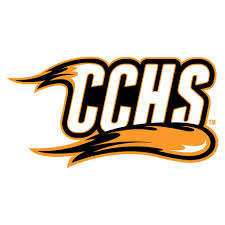Only biological females should compete in female wrestling events

Spencer’s Olivia Huckfelt is about to pin Waverly-Shell Rock’s Madison Hinrichs in the 235-pound championship match to secure the final title at the inaugural Iowa Girls High School Athletic Union Girls State Wrestling Tournament, which featured more than 450 female wrestlers.
By John Burbridge
sports@charlescitypress.com
Literary criticism normally doesn’t occupy this space, so take this nutshell book review with a grain of salt.
Jeffrey Eugenides’s epic Middlesex is, thus far, the greatest novel of the 21st Century (that I have read). The coming-of-age tale with a multi-generational, skewered-genetics backstory encompasses the brutal partitioning of the Ottoman Empire in the wake of World War I, the draconian and intrusive employment policies of Henry Ford, and the racial dynamics that ignited The Detroit Riot of 1967.
All this is narrated in omnipresent first person by the story’s protagonist, Callie … or should it be Cal?
Cal, as we’ll call “him”, was born with 5-alpha reductase deficiency, a condition that affects male sexual development before birth and during puberty. People with this condition are genetically male, with one X and one Y chromosome in each cell, and they have male gonads.
But with their gonads hidden at birth and their bodies not producing enough dihydrotestosterone (DHT), a hormone that plays a key role in the sexual development of males, they tend to be initially assigned as females — as in the case of Cal, who was raised as “Callie” well into his teens.
Cal’s biological circumstance falls under the multifaceted classification of “intersex”, a medical term used in favor of the derogatory “hermaphrodite” that describes bodies that fall outside the strict male/female binary.
Eugenides’s tour de force took nearly a decade to complete before being released in 2002. Reaction from the medical, intersex and LGBTQ communities was mixed even after the novel was awarded a Pulitzer Prize.
Though still relevant 20 years after its publication, I can’t help but wonder what type of heat Middlesex would generate as a best-seller today. It would surely challenge the recently charged notion that there are absolutely no shades of gray between the homo sapien genders.
Now that I got that appraisal out of the way, I can get back to my day job — biological males (including intersex males) should not be allowed to wrestle in scholastic tournaments and duals that cater exclusively to females.
Maybe I should include swimming and tennis and/or other scholastic sports in this essay, but I’m going to focus on wrestling.
I would be amiss if I didn’t acknowledge the courageous performance of Sigourney-Keota sophomore Reanah Utterback, who placed eighth in the Class 1A 106-pound bracket at the recent State Wrestling Traditional Tournament. She made it as far as the quarterfinals before a major-decision loss to eventual champion Jayden Rinken of Nashua-Plainfield sent her to the consolation bracket.
She became the second female in the history of the “boys” tournament to make it to the podium.
Some are not cool with females breaching boys wrestling events, and I do sympathize with those boy wrestlers who are uncomfortable competing against girls, even taking forfeit losses in protest due to personal beliefs.
That printed, Utterback and other girls who are willing and able to brave the boys’ brackets should be continually allowed to do so.
I may be painting myself as a hypocrite or at least as someone not consistent with their beliefs. But consistency can be the hobgoblin of common sense, and claiming that biological boys should be allowed to wrestle girls because biological girls are allowed to wrestle boys is a primo example of such a “goblin”.
Several weeks before Utterback’s podium placement, history was made. The Iowa Girls High School Athletic Union capped its first sanctioned girls wrestling season with its first sanctioned Girls Wrestling State Tournament at the Xtreme Arena in Coralville.
It had been a long time coming for a formerly fledgling female sport that has grown exponentially, especially in the last few years. To give an idea, more than 450 wrestlers qualified to the state tourney, pulled from a vast regional pool the week before.
This should be considered a godsend on the heels of the 50th anniversary of Title IX.
As part of the Education Amendments of 1972, Title IX prohibits sex-based discrimination in any school or any other education program that receives funding from the federal government.
During its first half century, and likely beyond, Title IX has been subject to loose interpretations, especially in regards to its lynchpin word “equity”. Best defined in the context of Title IX, equity is the quality of being fair and impartial while factoring in different and nuanced circumstances in the allocation of opportunities and resources. Title IX is supposed to ensure such an environment for all students, but administrators tend to synonymously equate “equity” with “equal” — the exact same opportunities and resources, no matter what circumstance.
So with football, the main male fall team sport, dressing 40, 50, 60 players each game, while volleyball, the main female fall team sport, dressing only 10 to 15, several public institutions find it necessary to balance the books at some point during the school year by eliminating a predominantly male sport.
Wrestling has often been the sacrificial lamb.
But with sports and extracurricular activities being extensions of the classroom, schools should never eliminate opportunities in the name of equality. Instead, they should create more opportunities, and female wrestling is one of the means to do that.
Several biological males identifying themselves as females with backing from their supporters are using Title IX to champion their causes. But when it comes to the “right” to wrestle females, such convolution is corrupting the federal law’s main intent while possibly initiating more number-squeezing reductions in efforts to stay within compliance.
If biological males are allowed to wrestle at female events, it would more than likely discourage females from participating in wrestling — or even just give it a try to see if they like it — and stunt if not destroy the inspiring progress female wrestling has made thus far. (Any counter that tangible evidence has yet to emerge to support such a prediction would be another common sense-casualty crime scene)
I’m usually left of
Mother Jones on self-identifying issues like these, and I know this stand aligns me with some folks I’m not inviting to dinner anytime soon. But this is where I draw the line.








Social Share